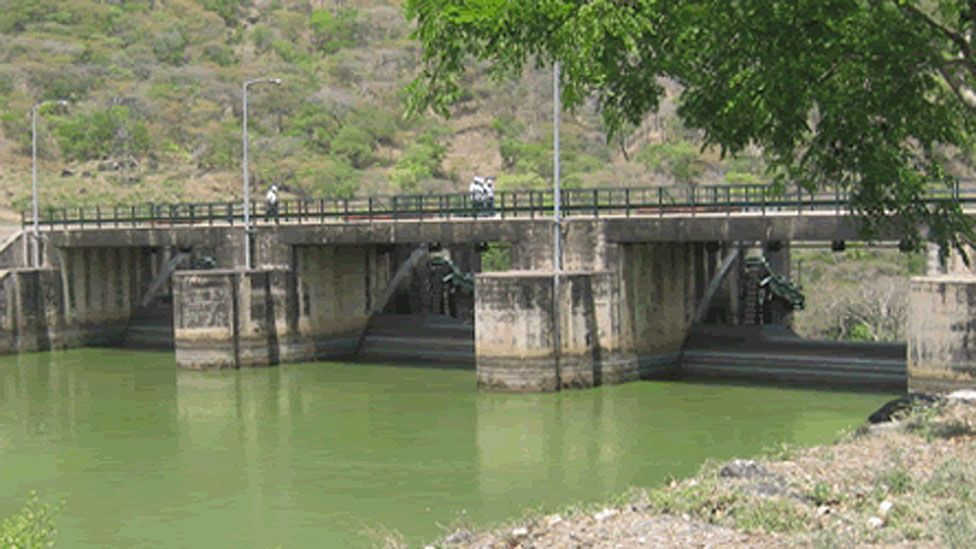Tanzania closing hydropower plants
- Published

All hydropower plants in Tanzania are being switched off because a lack of rain has led to low water levels in the country's dams.
Hydro-electricity generation has fallen to 20% of capacity, making it difficult for the dams to operate.
It is the first time the East African nation has closed all hydro plants, which generate 35% of its electricity.
The power crisis has been made worse by problems at new natural gas plants, an energy ministry official told the BBC.
The closing of the hydropower dams was beyond the government's control, said Badra Masoud, head of communication at the ministry.
"We cannot do anything because of the changes in environment - we are not getting enough rain."
Ms Masoud said more people farming upstream from the dams was not helping the situation, as this reduced the flow of water.
"We are trying to convince Tanzanians not to farm upstream," she said.
According to Tanzania's private Citizen paper, the state-owned power company, Tanesco, has already shut down its major Mtera hydropower plant, which can generate 80 MW.
The country consumes 870 MW but it only currently generates 105 MW, the paper says.
Only 24% of mainland Tanzania's population is connected to electricity services.
The BBC's Aboubakar Famau in the main city of Dar es Salaam says those who can afford it tend to invest in generators because of chronic shortages.
Tanesco also imports power from Kenya, Uganda and Zambia.
The government wants to increase the number of people connected to the grid by 50% in the next 10 years.
Last month, three new gas power plants in Dar es Salaam were turned on, using gas piped from the south of the country.
But it is these plants are also now not working to full capacity because of technical glitches.
"I cannot predict when this will be sorted out because of the technical issues - we need to be patient so that all these problems and challenges can be sorted out," Ms Masoud said.
Our reporter says the country's long rainy season is expected to start in December.
- Published2 May 2023
- Published27 January 2015